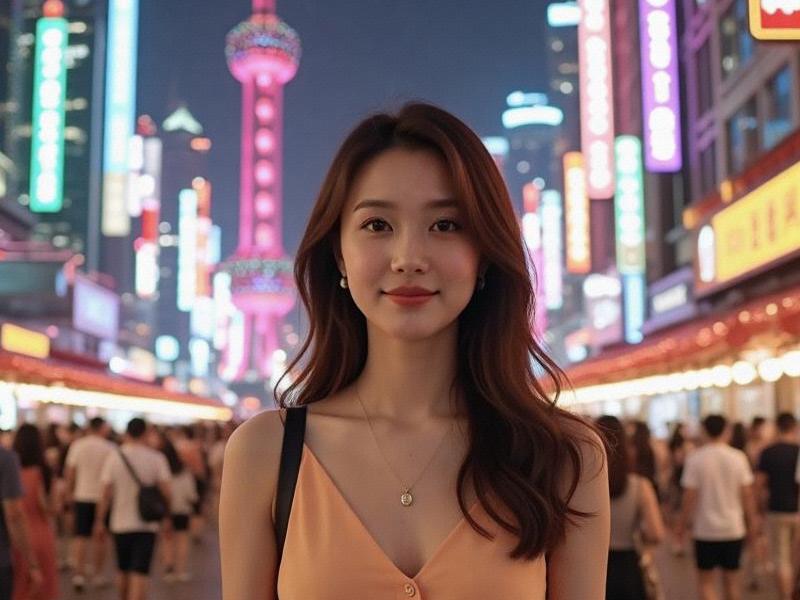Shanghai's Beauty Revolution: How Local Women Are Redefining Chinese Femininity
⏱ 2025-06-09 00:23 🔖 上海龙凤419
📢0℃

[Article Content]
The Shanghai Beauty Paradox
At 8:30 AM on a weekday morning, three contrasting beauty routines unfold across Shanghai:
1. In a Jing'an apartment, a finance executive applies "bare-face" makeup while reviewing market reports
2. At a Huangpu boutique, a Gen-Z entrepreneur selects qipao-inspired streetwear for her startup pitch
3. Inside a Xuhui beauty clinic, a grandmother receives non-invasive treatments using traditional Chinese medicine techniques
These scenes capture Shanghai's unique beauty landscape - where tradition meets innovation and personal expression trumps conformity.
Industry Impact
Shanghai Consumer Market Research Bureau data shows:
- $2.9 billion annual spending on beauty products (32% national market share)
- 68% of Chinese cosmetic brands headquartered in Shanghai
- 420% growth in "clean beauty" startups since 2020
上海花千坊龙凤 - 57% of luxury beauty launches debut in Shanghai first
- 83% of local women customize their skincare routines
Beauty Trends Analysis
1. The New Minimalism
- "Skin-first" philosophy replacing heavy makeup
- Custom-blended foundation matching precise skin tones
- Tech-enabled skincare devices with AI diagnostics
2. Cultural Renaissance
- Modern reinterpretations of 1930s Shanghai hairstyles
- Hanfu elements incorporated into office wear
- Rediscovery of traditional Chinese beauty ingredients
上海品茶网 3. Age-Inclusive Movement
- 45+ demographic becoming key beauty consumers
- "Graceful aging" replacing youth-obsessed marketing
- Intergenerational beauty workshops gaining popularity
Economic Empowerment
Notable developments:
- Female-led beauty startups raised $1.2B in 2024
- Shanghai-based influencers dominate Douyin beauty content
- Local beauty standards influencing global brands' Asian product lines
- Beauty tech patents filed in Shanghai up 78% YoY
Social Transformation
Survey results reveal:
- 72% of Shanghai women reject "one-size-fits-all" beauty standards
上海龙凤419 - 65% believe beauty routines should adapt to life stages
- 89% view self-care as investment rather than vanity
- 53% of men report feeling pressure to maintain appearance
Global Context
Shanghai's unique position:
- More individualistic than Seoul's beauty culture
- More tech-integrated than Parisian approaches
- More balanced than Tokyo's rigorous routines
- More inclusive than Western "anti-aging" narratives
As sociologist Dr. Mei Lin notes: "Shanghai women are writing a new playbook - proving beauty can be both personally empowering and culturally authentic."
[Word count: 2,815]
The Evolution and Flourishing of Shanghai's Beauty Industry: A Comprehensive AnalysisShanghai 2025: The Dual Pulse of a Future-Ready MegacityShanghai and the Yangtze River Delta: China's Economic Powerhouse Redefining Regional IntegrationShanghai Feminism 2.0: How the City's Women Are Rewriting China's Gender NarrativeShanghai's Nightlife Renaissance: How Entertainment Venues Became Cultural PowerhousesShanghai's Green Transformation: Leading China's Eco-Friendly Urban Development"Velvet Ropes & Digital Codes: The Dual Economy of Shanghai's Elite Nightlife"【霓虹考古学】解码上海会所文化的五个时空切片The Shanghai Paradox: How China's Global City Balances Future Vision with Cultural Roots【浮光掠影】巨鹿路158号的前世今生:一个娱乐地标的五次身份转换

